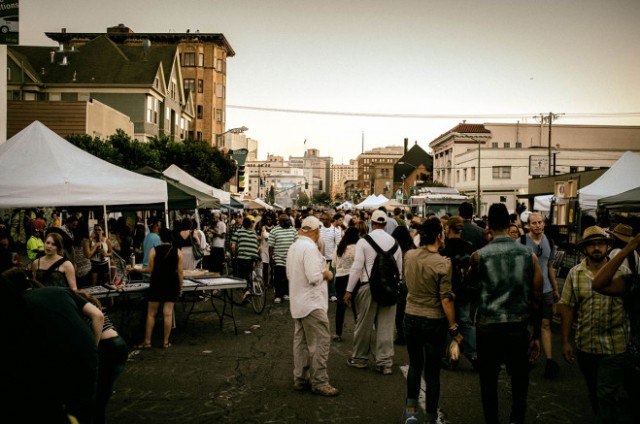By Kelly Baker, Oakland Local

It’s been nearly a year since the shooting that took the life of young Kiante Campbell and sent shock waves through the community. In the wake of the tragedy, many questioned the future of Oakland’s First Fridays event. Over the summer, the city dealt another blow by scaling back its financial support of the monthly event. Koreatown Northgate Community Benefits District (KONO) has since taken the reins of the once entirely volunteer and community-run monthly street festival. But now, more than ever, KONO believes First Fridays are here to stay.
Last week, KONO released a report on the benefits the monthly event has for local businesses, vendors and attendees. Key findings show that event attendees spend, on average, $80 per visit, and revenue for business owners increases 100 to 250 percent on event nights. Moreover, 48 percent of survey respondents reported that they would need to find replacement income if the event were no longer to occur.
Highlighting the importance of First Fridays for budding entrepreneurs, 38 percent of street vendors reported that Oakland First Fridays was their first vendor experience. Victoria Swift, the Mills College graduate student who implemented the five-month study, said this response indicates that “First Friday can be a mechanism to promote economic opportunity for hyper-localized business and entrepreneurs who otherwise wouldn’t be able to get a foot into the marketplace.” With its low vendor fees — starting at just $10 for a table — First Fridays presents resource-strapped entrepreneurs a unique opportunity to test out their business ideas and make valuable connections.
The surveys were collected between March and July 2013, beginning right after the shooting and ending around the time when the city cut off its funding for the event. Through some of the most uncertain months in the festival’s history, Swift diligently followed up with business owners in order to get a clearer picture about how the event impacts their businesses.